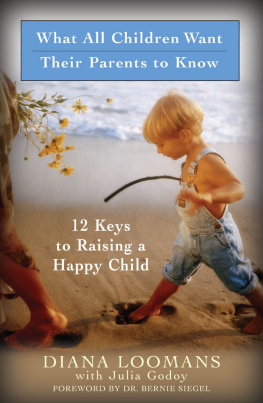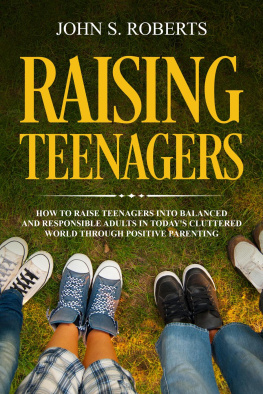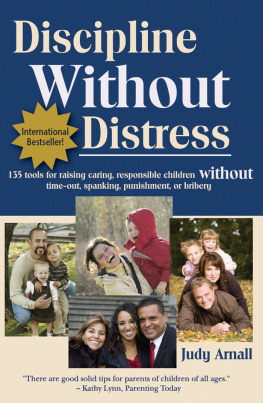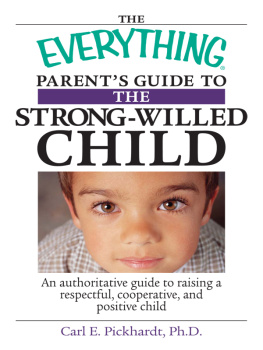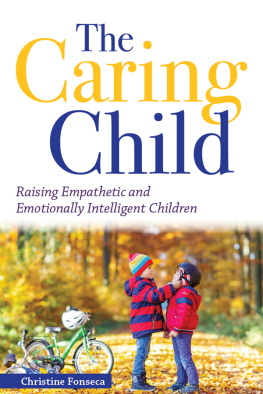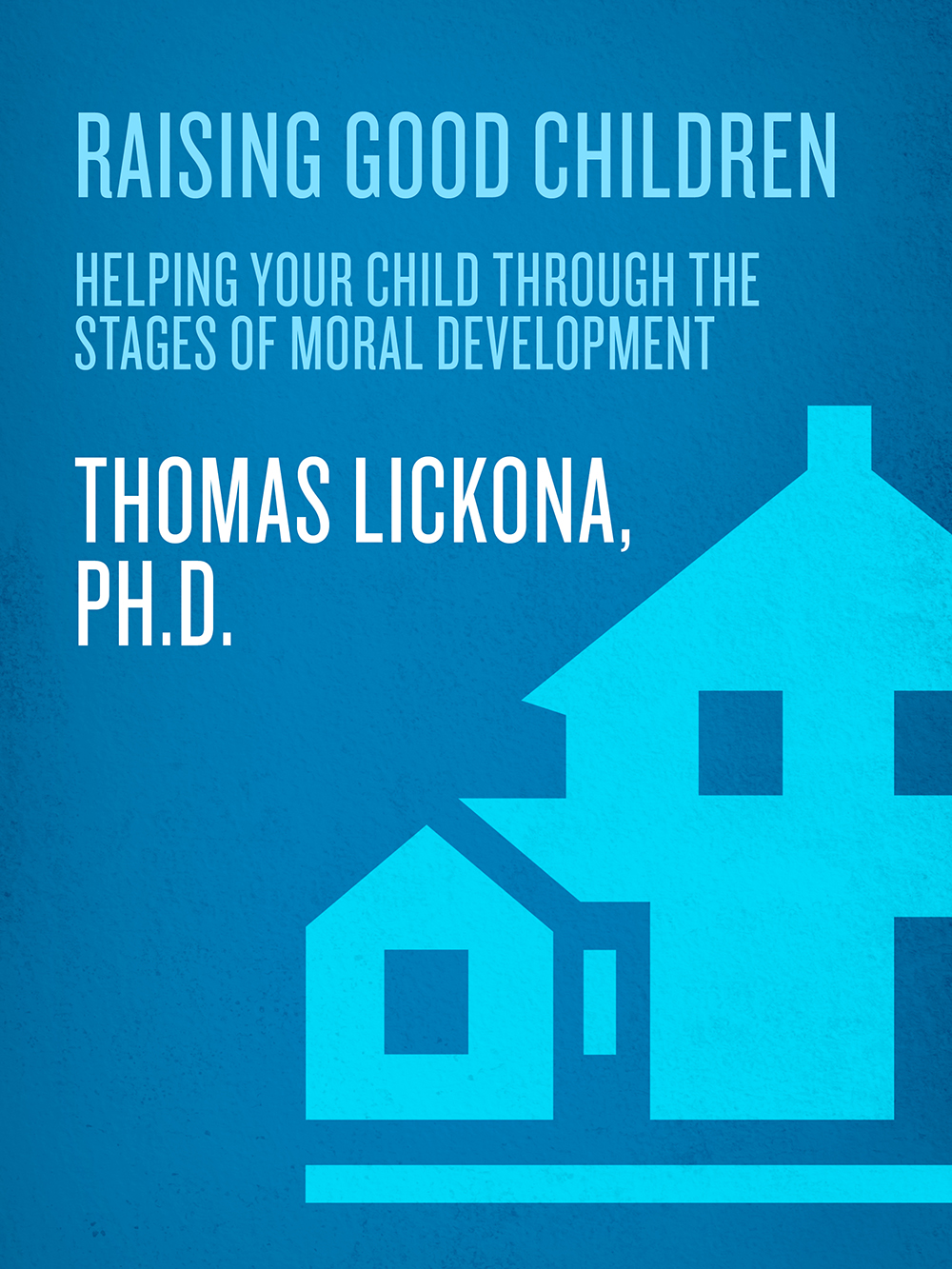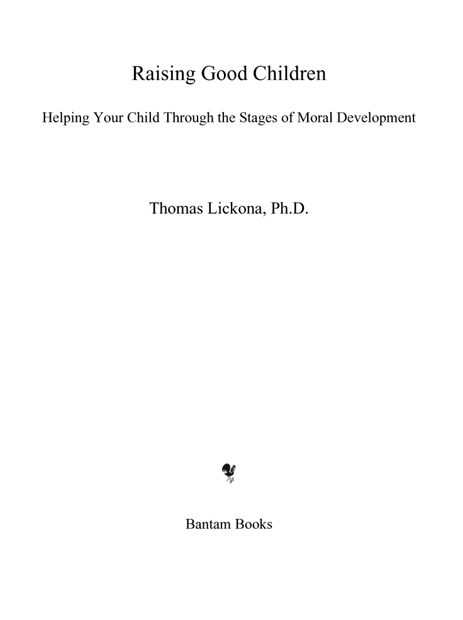RAISING GOOD CHILDREN
A Bantam Book
PUBLISHING HISTORY
Bantam hardcover edition / September 1983
Bantam paperback edition / February 1985
Bantam trade paperback edition / October 1994
Grateful acknowledgment is made to the following for permission
to quote from copyrighted work:
Abbey Press: Excerpt from When A Story Would Help by Lucie
W. Barber, copyright 1981, St. Meinrad Archabbey, and reprinted
with permission of Abbey Press, St. Meinrad, Indiana.
Abbey Press: One line from an Abbey Press catalogue, A child is
the only known substance, reprinted with permission of
Abbey Press, St. Meinrad, Indiana.
Field Newspaper Syndicate: One Ann Landers letter, reprinted with
permission of Ann Landers, Field Newspaper Syndicate.
Guidance Associates Publishers: Sharons Dilemma, excerpted
from Teacher Training: A Workshop in Relationships and Values,
by Dr. Edwin Fenton, copyright 1976. Reprinted with permission
of Guidance Associates.
The New Yorker: Drawing by Dana Fradon; copyright 1975 The
New Yorker Magazine, Inc. Reprinted with permission of
The New Yorker.
Universal Press Syndicate: Taken from the Dear Abby column.
Copyright 1983, Universal Press Syndicate.
Reprinted with permission. All rights reserved.
All rights reserved.
Copyright 1983 by Thomas Lickona.
Library of Congress Catalog Card Number 83-7081.
No part of this book may be reproduced or transmitted in any form
or by any means, electronic or mechanical, including photocopying,
recording, or by any information storage and retrieval system,
without permission in writing from the publisher.
For information address: Bantam Books.
eISBN: 978-0-307-81651-1
Bantam Books are published by Bantam Books, a division of Bantam Doubleday Dell Publishing Group, Inc. Its trademark, consisting of the words Bantam Books and the portrayal of a rooster, is Registered in U.S. Patent and Trademark Office and in other countries. Marca Registrada. Bantam Books, New York, New York.
v3.1_r1
CONTENTS
Part 1:
The Moral Development Approach to Raising Good Children
Part 2:
Laying the Foundation of Moral Development From Birth Through Three
Part 3:
How to Help Your Child Through the Stages of Moral Reasoning From Preschool to Adulthood
Part 4:
Concerns That Cut Across Ages and Stages
A child is the only
known substance from which
a responsible adult can
be made.
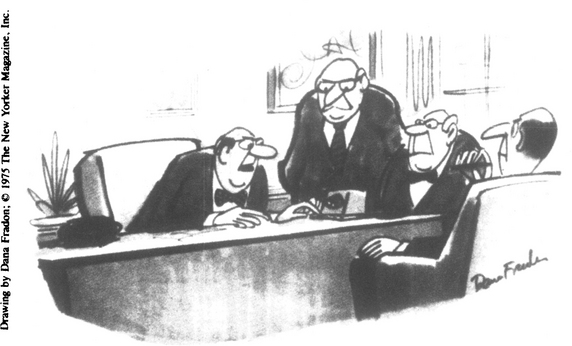
Miss Dugan, will you send someone in here who can distinguish right from wrong?
Part I
The Moral Development Approach to Raising Good Children
CHAPTER 1
RAISING GOOD CHILDREN
Of all the tasks of parenting, few are as important as raising good children.
Thats because morality, or basic goodness, lies at the heart of what it means to be human.
As parents, we may want many things for our children. We may want them to bring home good grades, do well at sports, or have lots of friends. But they are no less persons, no less human, if they do not possess these qualities.
Its a different matter, however, if our children are not good and decent people. In that case, they do not stand tall as persons. Their humanity is diminished.
But what does it mean to be good? Is a good child one who never questions when told what to do? Or does healthy obedience include moral reasoningthe ability to understand in your own conscience why some things are right and others wrong?
Think for a minute about what you want for your children when you want them to be good.
You want them to be fair and honest and trustworthy.
You want them to respect the rights of others. You want them to respect legitimate authority, rules, and laws.
You want them to be responsible for their own behavior. You want them to feel a decent measure of concern for their fellow human beings.
You want them to be able to stand on their own feet and resist pressure to go with the crowd.
You want them to be capable of generosity and love.
All of these things are part of being a good person. And I think all parents who are concerned about raising good children want their children to have these qualities.
WHAT CAN PARENTS DO?
What does it take to raise a good child?
Theres no doubt in my mind that it takes more from parents than it ever did before. In the old days, Mom and Dad were part of a bigger team. Home, school, and church all taught the same basic values and pulled together to keep kids on the straight and narrow. Thats certainly far less true today. In the old days, kids had many parents. If your own mother or father didnt catch you when you were up to no good, your grandmother did, or your Uncle Nick, or the lady next door. As one mother says, In those days, everybody supervised everybodys kids. Now a lot of people dont even supervise their own. It wasnt long ago when a mother and a father had at least each other to share the task of caring for kids and guiding their development. Now, with the rapid rise in single-parent families, the whole job often falls on one parents shoulders.
Parents not only have less help than they used to, but theyre also up against a lot more. They face a social environment that is actively hostile to many of the values they would like to teach their children. TV and movies present violence, law-breaking, and casual sex as standard human behavior. The peer group is an ever more powerful shaper of kids thinking and behavior, and it often teaches values that go directly against what we want our children to learn. A study by Cornell Universitys Dr. Urie Bronfenbrenner found that American children were more likely to break a rule or law if they thought their peers would know about it. Says a father,
I find a black and white contrast between my values and the values kids get from their peer group. I was brought up on self-discipline and self-denial. Be a good student, and youll get a good job. Be a good person, and youll go to heaven. To todays peer group, whatever feels good is cool. Getting in trouble is great. Their ethic is immediate satisfaction. Pleasure now.
Says a mother of two teenage girls,
The kids are forever saying, Everybodys doing it. Everybody goes to parties where theres drinking. Everybody goes to R movies. They keep it up. After a while, it starts to wear you down.
Researchers confirm what parents fear: kids at every grade level are more dependent on peers than they used to be.
Other parents are part of the problem. Not everybody makes raising good kids a high priority. Not everybody wants to invest the time and effort it takes to monitor what kids are doing and guide their thinking and actions. Says one father, I hate to admit it, but frankly, its too much of a hassle to keep after the kids. I dont have the energy for it. Not everybody takes the trouble to discipline their kids or say no to them when they want to go to unsupervised parties or drink before theyre of age. Not everybody sets a good example for their children. Said a high school principal to the mother of a failing student, a boy who was known to be a heavy marijuana user: Your son is smoking a lot more dope than is good for him. Replied the mother: He gets better stuff than we do.


